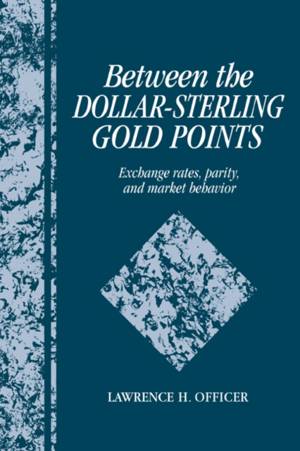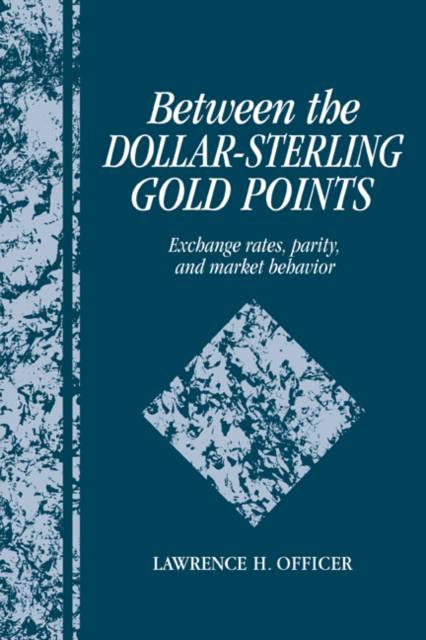
- Afhalen na 1 uur in een winkel met voorraad
- Gratis thuislevering in België vanaf € 30
- Ruim aanbod met 7 miljoen producten
- Afhalen na 1 uur in een winkel met voorraad
- Gratis thuislevering in België vanaf € 30
- Ruim aanbod met 7 miljoen producten
Zoeken
Between the Dollar-Sterling Gold Points
Exchange Rates, Parity and Market Behavior
Lawrence H Officer, Officer Lawrence H
€ 95,45
+ 190 punten
Omschrijving
Officer begins this book with a historical perspective of the monetary standards of the United States and Britain. He then develops data on exchange rates, mint parity and gold points, with which he investigates three important features of Anglo-American monetary history. First, the integration of the American foreign-exchange market over time. Second, it is proved that gold-point arbitrage is markedly more efficient than either interest arbitrage or forward speculation. Third, regime efficiency is explored from standpoints of both private agents and policy-makers; the 1925-1931 gold standard, though less durable than the pre-war standard, is nevertheless shown to be surprisingly stable. The book will serve as a Dollar-Sterling handbook for those interested in this important aspect of international monetary history.
Specificaties
Betrokkenen
- Auteur(s):
- Uitgeverij:
Inhoud
- Aantal bladzijden:
- 368
- Taal:
- Engels
- Reeks:
Eigenschappen
- Productcode (EAN):
- 9780521038218
- Verschijningsdatum:
- 2/07/2007
- Uitvoering:
- Paperback
- Formaat:
- Trade paperback (VS)
- Afmetingen:
- 152 mm x 229 mm
- Gewicht:
- 539 g

Alleen bij Standaard Boekhandel
+ 190 punten op je klantenkaart van Standaard Boekhandel
Beoordelingen
We publiceren alleen reviews die voldoen aan de voorwaarden voor reviews. Bekijk onze voorwaarden voor reviews.











